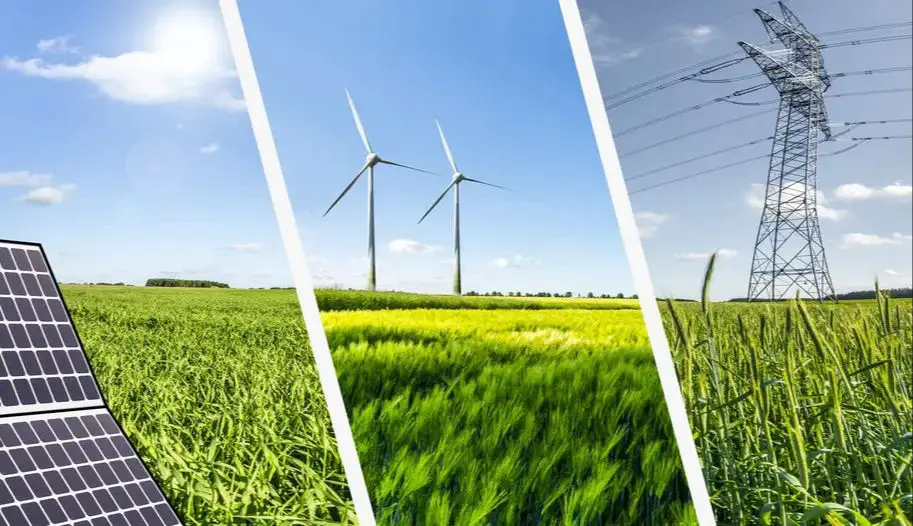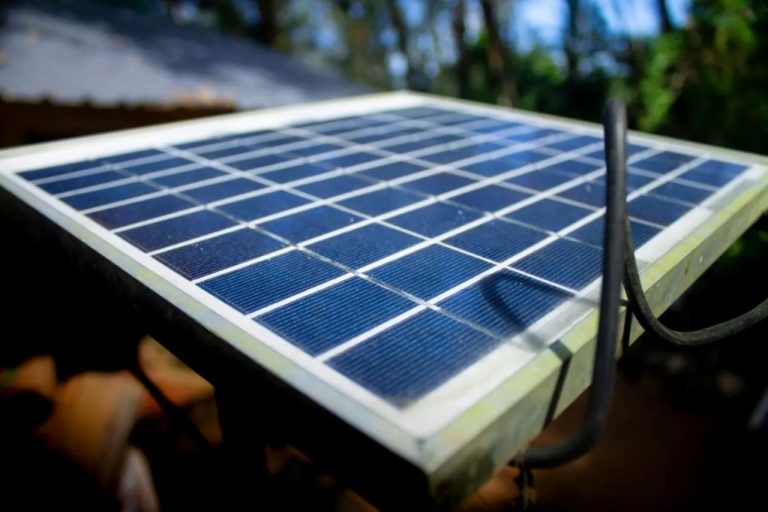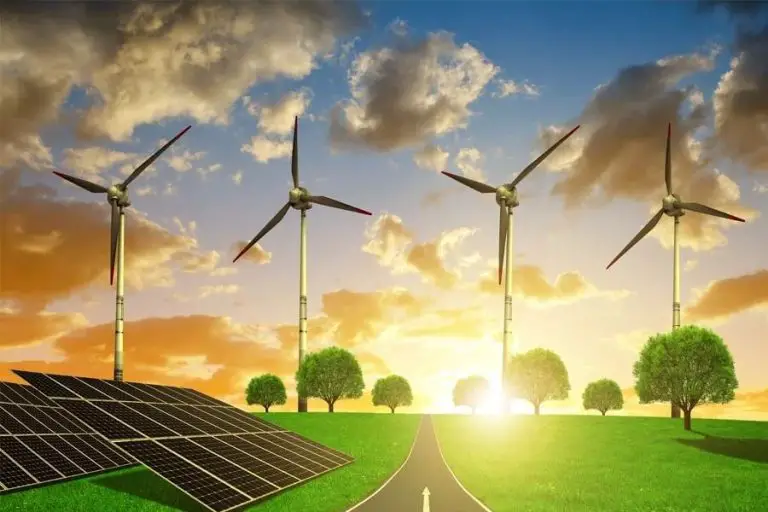Is Renewable Energy A Good Career?

Renewable energy careers involve working in industries that produce energy from renewable sources like solar, wind, hydropower, geothermal, and biomass. These jobs span a wide range of roles across engineering, construction, operations, maintenance, sales, policy, and more. According to the 2022 U.S. Energy and Employment Report, jobs in renewable energy increased in 2021, with wind employment growing by 17% and solar jobs increasing by 7%. There is strong demand for renewable energy workers as countries transition to clean energy to address climate change and energy security concerns. The International Renewable Energy Agency predicts that renewable energy jobs could reach 38 million globally by 2050.
Types of Jobs
There are several major types of jobs in the renewable energy industry:
Solar Power Jobs
Jobs related to solar power include solar photovoltaic installers, who install, maintain, and repair solar panels on rooftops or other structures. Solar engineers design and oversee large solar installations. Solar sales representatives promote and sell solar systems. Solar manufacturing technicians work in factories producing solar panels, inverters, and other system components.
Wind Power Jobs
Wind turbine service technicians install, maintain, and repair wind turbines. Wind energy engineers design and develop wind facilities. Wind energy operations managers oversee wind farms. There are also wind manufacturing jobs producing turbine blades, generators, gearboxes, and other components.
Geothermal Jobs
Geothermal technicians and mechanics install, monitor, and maintain geothermal heat pumps and direct-use systems. Geothermal engineers design, develop, and manage geothermal plants. Drillers create boreholes and wells for geothermal installations. There are also geoscience jobs like geologists involved in exploration and reservoir engineering.
Hydroelectric Jobs
Hydroelectric plant technicians operate, maintain, and repair hydropower facilities and turbines. Hydroelectric plant managers oversee dam operations and electricity generation. Civil engineers design and monitor dam structure safety. Environmental scientists assess the ecological impacts of dams and suggest mitigation measures.
Salary and Compensation
According to Payscale, the average salary for an Energy Analyst in renewable energy ranges from $52,000 – $91,000, with an overall average of $70,701. The average salary for an Energy Engineer is between $59,000 – $105,000. Salary.com reports the average salary for a Renewable Energy Engineer specifically is $80,561. Talent.com states the overall average salary for renewable energy jobs is $107,765 per year or $51.81 per hour.
Compared to similar roles in non-renewable energy fields, renewable energy salaries are quite competitive. For example, the average salary for a Petroleum Engineer is $114,080 per year, while a Renewable Energy Engineer earns an average of $80,561. Though lower, renewable energy salaries are rising quickly as demand grows for these skills.
Job Outlook and Growth
The renewable energy industry is experiencing rapid growth and is expected to continue expanding as governments enact policies to transition away from fossil fuels. According to a 2022 report from the U.S. Department of Energy, clean energy jobs grew 3.9% in 2021, adding 114,000 jobs across the country.1
Many renewable energy occupations are projected to grow much faster than the national average in the coming years. For example, the Bureau of Labor Statistics predicts wind turbine service technician jobs will increase by 68% between 2020-2030, while solar PV installers are forecast to grow by 52%.2
Driving this job growth are government policies aimed at transitioning the energy system away from fossil fuels and towards renewables. Many states have enacted renewable portfolio standards that require utilities to get a certain percentage of their electricity from renewable sources. California, for instance, has a target of 60% renewable energy by 2030 and 100% by 2045.1 Meeting these ambitious goals will require major investments in renewable energy and drive the creation of many new clean energy jobs.
Education Requirements
The minimum education required for entry-level jobs in renewable energy is an associate’s degree, although many employers prefer a bachelor’s degree. According to Vault, most technical positions require an associate’s degree or bachelor’s degree, with relevant majors including environmental science, physics, mathematics, and engineering.
More advanced roles like engineering and management positions typically require a bachelor’s degree or higher. Common majors for these roles include environmental engineering, mechanical engineering, electrical engineering, and environmental science. Some research and development roles may require a master’s degree or PhD.
Regardless of the exact position, coursework in math and science is essential. Students interested in renewable energy are encouraged to take classes in chemistry, physics, biology, algebra, trigonometry, and calculus. Hands-on training through internships is also highly recommended.
Skills and Training
A career in renewable energy requires a diverse set of technical and interpersonal skills. Many jobs require an engineering background and skills in areas like electrical, mechanical, chemical, civil, and environmental engineering. Specific technical skills like knowledge of photovoltaics, wind turbines, hydroelectric power, biomass, geothermal systems, and energy storage are also important.
Interpersonal skills like communication, teamwork, critical thinking, and problem solving are equally vital. Renewable energy professionals need to collaborate with teams of engineers, construction workers, project managers, and more. Strong communication skills help convey complex technical concepts and liaise between different stakeholders.
Ongoing training is a must to keep up with the latest renewable energy technologies and innovations. Certifications like the North American Board of Certified Energy Practitioners (NABCEP) for solar PV installation are encouraged. Some employers may provide on-the-job training as well. Overall, a commitment to lifelong learning is essential in this rapidly evolving field.
Work Environment
Most renewable energy jobs involve hands-on, field-based work rather than office work. Many occupations require employees to routinely work outdoors at power plants, wind farms, solar parks, hydropower facilities, and other project sites.
Work activities frequently take place in all weather conditions, at heights, and in loud industrial settings. Proper safety protocols, protective gear, and caution are necessary when servicing heavy equipment.
While some managerial and engineering positions may be primarily office-based, periodic travel to field locations is common. Overall, those pursuing a renewable energy career should be comfortable working outdoors, around industrial machinery, and collaborating with on-site crews.
Job Satisfaction
Most people who work in renewable energy report high levels of job satisfaction. According to a 2023 survey by Airswift, 39% of renewable energy professionals said their job satisfaction relies on having a sense of purpose in sustainability work.1 The innovative technologies and fast-paced, dynamic projects in this field also contribute to high job satisfaction. In another survey by Mackinnon and Partners, almost 70% of renewable energy professionals said they were satisfied or highly satisfied with their jobs.2 The opportunity to combat climate change and work with cutting-edge technology seems to provide a great sense of purpose and fulfillment for many renewable energy professionals.
Challenges
The renewable energy industry faces some challenges that professionals should be aware of. One issue is uneven policy support, as cited by Whitham Group. The industry relies heavily on government incentives and policies, which can change over time. This uncertainty makes long-term planning difficult.
There is also stiff competition for some renewable energy jobs, particularly ones involving new technologies, as noted by Cybernetic Search. The sector is expanding rapidly, but the talent pool is still catching up with demand in some areas.
Additionally, some renewable energy jobs involve hard physical labor, like solar panel installation and wind turbine maintenance, according to Energy5. Professionals need to be prepared for working outdoors and lifting heavy equipment in all weather conditions.
Conclusion
In conclusion, renewable energy jobs offer many advantages as well as some challenges. On the pro side, these jobs pay well with the median salary for solar PV installers at $44,890 and wind turbine technicians at $52,910. There is also strong job growth projected in the future as demand for renewable energy increases. The work is rewarding, allowing employees to contribute to solving climate change. On the con side, these jobs may require working outside in harsh weather or at great heights. The work can be physically demanding and hazardous at times. Education requirements are increasing with many jobs now needing an associate’s or bachelor’s degree.
Overall, renewable energy careers provide good compensation with meaningful work and bright prospects. For those with the proper skills, education and willingness to take on the challenges, it can be a very good career path, especially as more focus shifts to clean energy in the future. Just be prepared for hard work and some risk in exchange for decent pay and the ability to make a difference.





